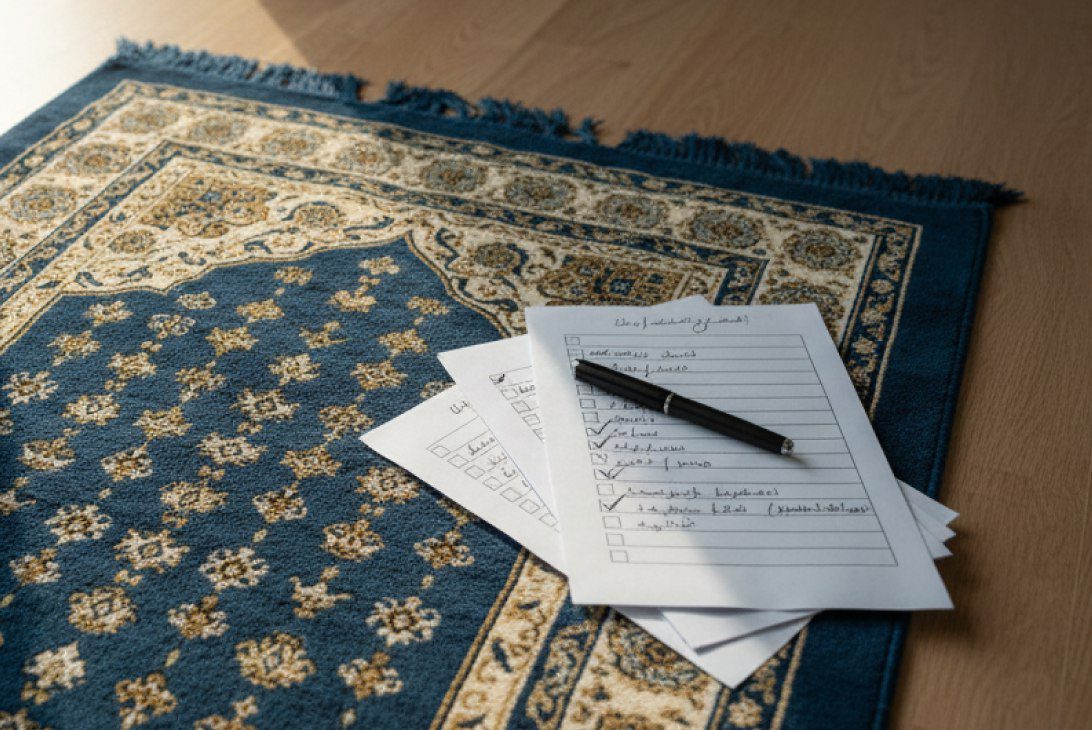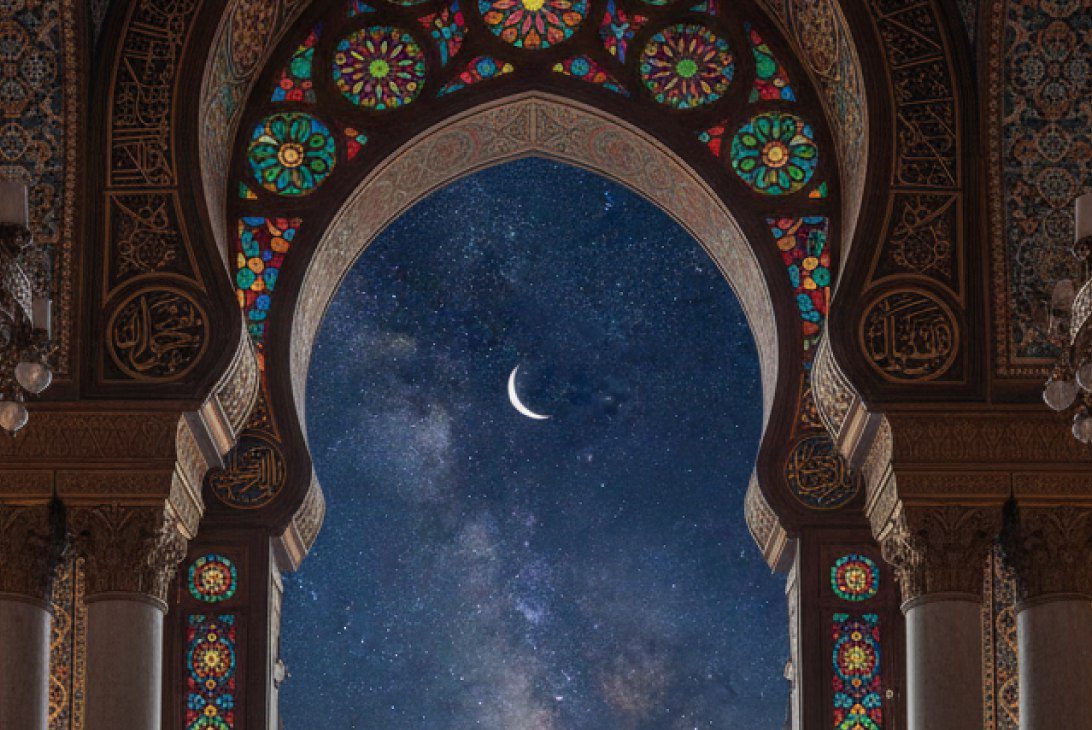Duʿā’ is more than a moment of worship; it is a lifelong practice that nurtures īmān, deepens true reliance upon Allah and nourishes the soul. Once it becomes a consistent part of your life, it transforms you completely.
Nourishing the Soul
Worship is a complete nourishment for the soul, mind and body. Every prayer, act of charity and virtuous deed is like a dish served from the banquet of divine sustenance.
Among all acts of worship, there is one that offers a deeper nourishment, one that purifies the heart and elevates the soul: intimate moments of supplication and devotion when the heart connects fully with Allah, free from all distraction.
These are the moments you choose for yourself to praise, remember, and call upon your Lord. In the quiet of the night or the still moments of the day, the heart clears and the soul rises toward Him. You call upon Him by His Names, glorify His Majesty, and speak to Him as the Prophets and the righteous did before you.
There is something wondrous that happens when dhikr and duʿā’ come together, when praise and petition flow from the same heart. True praise, grounded in Allah’s Names and Attributes, awakens the heart, deepens knowledge of Allah and draws one nearer to Him. Most Prophetic and Qur’ānic supplications begin with praise — affirming His power, beauty, and Oneness — before asking for anything, showing how praise and supplication fused together strengthen īmān. This alone is one of the great spiritual aims of worship, and among the most beautiful paths to the Lord of the worlds.
This intimate dialogue with Allah (munājāh) fills the heart with spiritual light, replenishes the soul, and clears the mind. Those who remain steadfast upon this path rise through the ranks of īmān, drawing ever closer to Allah, until they are counted among His beloved: those blessed with barakah, wisdom and nearness to Him.
Duʿa: A Worship of the Heart
Duʿā’ is a unique act of worship that brings together a multitude of the actions of the heart, perhaps more than any other individual act of worship. Within it lies the turning of the heart sincerely towards Allah, filled with hope in His response and fear of His displeasure. It embodies awe, reverence, reliance, humility, submission and love. It is infused with dhikr, the utterances of His Beautiful Names and the earnest seeking of His help.
Duʿā’ nourishes the soul, increases the knowledge of Allah and illuminates the heart with the light of īmān. It transforms worship from a routine into an intimate connection.
Ibn Taymiyyah (raḥimahullāh) said: “One of the greatest blessings of Allah upon His believing servants is that He sometimes sends upon them hardship and trials that compel them to turn to Him alone, worshipping Him with sincerity. In those moments, they call upon Him sincerely, hoping in Him and in no one else. Their hearts become attached to Him and detached from others. As a result, they attain true reliance (tawakkul) on Him, sincere devotion (inābah), the sweetness of faith, and a taste of its reality. They become free from all forms of shirk (associating others with Him). This spiritual gain is far greater than the mere removal of illness, fear, or poverty, or the attainment of ease after hardship — for these are bodily pleasures and worldly comforts, which even disbelievers may enjoy more than the believer.”
How Duʿa Strengthens Iman
Turning to Allah in need reflects yaqīn: the certainty that He hears, responds, and has power over all things. No one calls upon one who is deaf or powerless. By raising our hands in duʿāʾ, we affirm our belief that Allah is the All-Hearing, All-Powerful, Most Generous, and Most Merciful. In doing so, our awareness of His Names and Attributes deepens, and our īmān grows with every sincere plea. As Imām al-Rāzī (raḥimahullāh) said:
“Duʿā’ instills an awareness of the humility of servitude and the majesty of Lordship, and this is the loftiest and noblest aim of every worship. The explanation is as follows: a person only turns to duʿā’ when they realise their own need for what they seek and their incapacity to attain it. They also recognise that their Lord hears their prayer, knows their need, is capable of relieving it, and is Merciful: His mercy necessitates that He removes that need. So, the one making duʿā’ does so because they see themselves as needy and helpless, and they know their Lord to be All-Knowing, All-Powerful, and Most Merciful. The ultimate goal of all acts of worship is to realise the humility of servitude and the majesty of Lordship. And when duʿā’ combines both of these realities, it is undoubtedly the greatest of all acts of worship.”
Seeking Allah’s help is half of the dīn and a sign of true īmān. When we turn to Him alone, fully certain that no one else can benefit or harm us, our tawakkul (reliance) and yaqīn (certainty) in Him grow. This intimate turning to Allah is one of the highest expressions of tawḥīd, affirming Allah’s supreme power and absolute authority.
ʿAbdullah b. ʿAbbas (raḍiy Allāhu ʿanhumā) said: “One day, I was behind the Messenger of Allah ﷺ (on a camel) and he said to me: ‘Son, I will teach you some words: be mindful of Allah and He will be mindful of you. Be mindful of Allah and you will find Him in front of you. When you ask, then ask Allah. When you seek help, then seek help from Allah. Know that if the ummah gathered together to benefit you with something, they would only benefit you with something that Allah has already written for you. If they gathered together to harm you with something, they would only harm you with something that Allah had already written against you. The pens have been lifted and the pages have dried’” (Tirmidhī).
The Sweetness of Duʿa
One of the greatest benefits of duʿā’ is the joy, tranquillity and peace it brings to the heart. Through sincere supplication, Allah grants moments of heightened īmān, filling the heart with the sweetness of intimate conversation and allowing the soul to taste the beauty of servitude and worship.
Ibn al-Qayyim (raḥimahullāh) explained: “A person may have a need for something which is permissible for him to ask of Allah. So he persistently and urgently calls upon his Lord for it until, through this persistence, the sweetness of intimate conversation (munājāh) with Allah is opened to him. He finds joy in humbling himself before Allah, in praising and pleading with Him, in invoking His Names and Attributes, in expressing his tawḥīd (oneness of Allah), in detaching his heart from everything else, and in placing his hope only in Him. All of this would not have been possible without his persistent duʿā’…
…At times, Allah opens up to the servant during his duʿā’ a level of closeness, love, humility, and brokenness that causes him to forget his actual need. What has been opened to him becomes dearer to him than the need itself. He even begins to wish that this state of being continues, and prefers it over the fulfillment of his need. His happiness with this intimate state surpasses the happiness he would feel if his request were granted and then taken away.
One of the gnostics (ʿārifūn) said, ‘There are times when I have a need from Allah, so I ask Him for it. Then, as I begin supplicating, Allah opens up for me the sweetness of calling upon Him and knowing Him, of being humbled and devoted before Him, and I find myself wishing that the fulfillment of my need would be delayed so that this beautiful state continues.’”
Similarly, Dāwūd b. Abī Hind narrated that when Ḥajjāj arrested Saʿīd b. Jubayr (raḥimahullāh), Saʿīd said: “I see nothing ahead of me but being killed. Let me tell you: I once made duʿā’ with two companions, and we tasted the sweetness of duʿā’. Then we asked Allah for martyrdom. Both of my companions were granted it, and I am still awaiting it.” He added, “It was as if Saʿīd (raḥimahullāh) saw that the response to the supplication lies in the sweetness of duʿā’.”
“Seek the sweetness of worship in three things: in prayer, in the Qur’an, and in duʿā’. If you find it, then hold fast to it and praise Allah. And if you do not find it, then know that the doors of goodness are closed upon you.” – al-Ḥasan al-Baṣrī (raḥimahullāh)






